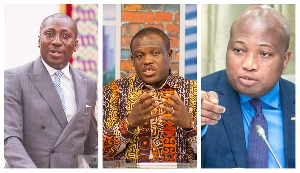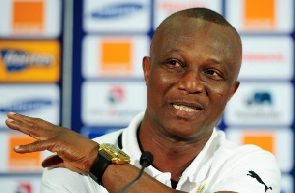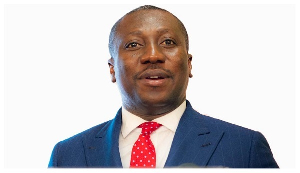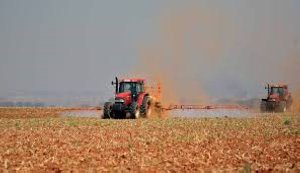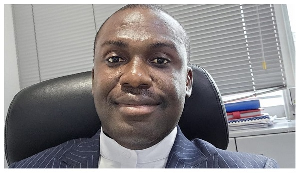Selection of Running-Mate Must Be Based on Sound Electoral Mathematics, Not Emotions
By Kwame Okoampa-Ahoofe, Jr., Ph.D.While, indeed, Ghana may be a multi-ethnic society and thus the imperative necessity for any winsome presidential candidate to court electoral support cross-culturally, nonetheless, in the game of politics, the endgame is winning and winning assuredly. For while, indeed, there is the unavoidable moral aspect of the game, winning is squarely predicated on the candidate’s chances of drawing the largest number of voters. In essence, party politics is not a mere rhetorical game of civil rights advocacy. If the latter were the case, with Vice-President Aliu Mahama as his running-mate, President Kufuor ought to have handily carried the bulk of the electoral votes in the three northern regions with him. Instead, it appears that for the eight years that he served as Ghana’s substantive Vice-President, Mr. Mahama was more of a decorative, theoretical figure than anything else.
This simply means that rather than shooting, a priori, for a non-Akan running-mate, as Legon political scientist Mr. Stephen Ahiawador prefers to counsel, Nana Akufo-Addo, and indeed all the other major presidential candidates, ought to be looking for a running-mate who is likely to garner more votes for the ruling New Patriotic Party (NPP), than merely the ethnic or regional background of the potential running-mate. The foregoing observation, however, in no way attempts to obviate – or preempt – the quite commonsensical Ghanaian electoral tradition of regional balance.
As for the perception of the ruling New Patriotic Party being an Akan political party, we beg to vehemently disagree with Professor Stephen Ahiawador; for the NPP is no more of a predominantly Akan party than the P/NDC is a predominantly Ewe party. Besides, in a country with a full 50-percent of its official population count being Akan, it is only natural for the majority who have deeply shared common beliefs and values to want to pursue an ideological interest that synchs with their worldview and culture.
This in no way implies the NPP blindly pursuing the parochial and unproductive ideology of political exclusivity. For it cannot be gainsaid that among all the significant – or major – ethnic groups in Ghana, the Akan are clearly and incontrovertibly the most inclusive and hospitable. And the latter observation is readily proven by the fact that while the Volta Region, for one striking example, has been “legitimately” dubbed the NDC’s World Bank, under the Kufuor Administration, with the probable exception of the Asante Region, none of the other four or five predominantly Akan regions can be objectively or scientifically characterized as an NPP World Bank. This partly explains Professor Atta-Mills’ recent quixotic attempt to impugn the credibility of the Electoral Commission (GEC) over the accuracy of the voters’ register in 13 constituencies in the Asante Region. The same attempt assayed by Nana Akufo-Addo, hypothetically speaking, would have drawn rocking laughter across the length and breadth of the entire country.
And while we also agree with Professor Ahiawador that it makes good political sense for the NPP presidential candidate to select his running-mate from a non-Akan enclave, or region, still, it significantly bears observing that there is absolutely no remarkable historical evidence validating such claim.
What the foregoing indicates, however, is the fact that Ghanaian politics largely remains ethnocentric, not in any essentialistic way or manner, but rather in terms of the empirically commonsensical. And by the latter, of course, the reference is poignantly to the fact that 20 years of pseudo-revolutionary adventurism by the so-called Provisional National Democratic Congress (P/NDC) has actually convinced most Ghanaians of the fact of the first law of democratic political culture being ethnic self-preservation.
The preceding does not in any way suggest that the bulk of the Ghanaian electorate, particularly those of Akan ethnicity, who endured the brunt of untold P/NDC atrocities, are incapable of engaging in salutary trans- or multicultural politics, for the latter brand of politics, to varying degrees of effectiveness, has been the norm since 1957 and even before. The problem inheres in the fact of the Akan, Ghanaian majority, in particular, having suffered unprecedented political trauma under the extortionate and invidious regime of the Ewe-dominated P/NDC. In essence, currently, the Akan, Ghanaian majority are collectively undergoing what expert psychologists term as the Post-Traumatic Stress Syndrome in the post-Rawlings era. And the latter syndrome entails the epic distrust of the politically dominant ethnic group in Ghana during the twenty harrowing years from 1981-2000. On the question of drafting Ghanaian women into presidential political culture, at least during the pre-colonial, and even postcolonial, traditional era, unlike other patriarchal Ghanaian ethnic groups, Akan women have played major roles in top-leadership positions, including acting substantively as both Kings and Queen-mothers simultaneously. And so, in reality, the significant presence of women in Ghanaian politics is nothing new. And here, we are not cavalierly talking about Nana Yaa Asantewaa of Ejisu (or Edweso) and Nana Afua Boatemaa of Akyem-Asiakwa, among a host of others. Indeed, to be certain, it is not the business of any group of Ghanaian men to “calculate,” or factor, women into the top-echelons of democratic politics; rather, it is the business of Ghanaian women themselves to unflappably announce their presence at the momentous level of presidential politics. Our men only need to be educated about the coequal competence of women at the highest levels of national politics.

Views expressed by the author(s) do not necessarily reflect those of GhanaHomePage.






